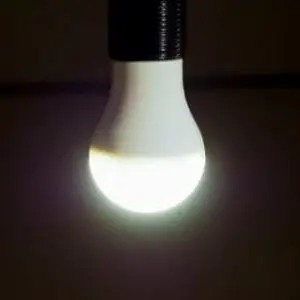You probably think that LED lights need a ground in order to work. However, this is not always the case.
What are LED lights?
LEDs, or light-emitting diodes, are semiconductor devices that emit light when an electric current passes through them. They are used in a variety of applications, including electronics, automotive lighting, and architectural lighting. LEDs have many advantages over traditional incandescent lights, including lower energy consumption, longer lifespan, improved durability, and better optical control.
How do LED lights work?
LEDs are semiconductor devices that convert electrical energy into light. They are made of a material called a semiconductor, which is a combination of two elements, usually one from the metal family and one from the nonmetal family. When electricity is applied to a semiconductor, it creates an electromagnetic field. This field surrounds the semiconductor and causes electrons to flow through it. The electrons flow through the semiconductor and collide with other atoms. When these collisions occur, they release energy in the form of photons (light).
Will LED Lights Work Without a Ground?
Yes, LED lights will work without a ground. But there are a few things to keep in mind:
- First, led lights will typically have a lower light output when compared to if they were grounded. This is because led lights rely on their ground connection to complete the circuit and provide the proper current.
- Second, led lights may be more susceptible to flickering without a ground connection. This is because LEDs rely on their ground connection to stabilize the voltage.
- Third, led lights may produce a buzzing sound if they are not properly grounded. This is because LEDs rely on their ground connection to help dissipate any electrical noise.
- Fourth, led lights may produce a dimming effect if they are not properly grounded. This is because LEDs rely on their ground connection to help regulate the current.
- Fifth, led lights may be more susceptible to failure without a ground connection. This is because LEDs rely on their ground connection to provide the proper current and voltage
The quality of the light may be diminished and there could be some safety concerns. It is always best to consult an electrician to ensure your wiring is up to code and safe.
What are some tips for using LED lights?
- Use a current limiting resistor for every LED.
- Pay attention to the polarity of the LEDs. The long leg is the positive one.
- For a series connection, connect the LEDs in the order you want them to light up.
- For a parallel connection, connect all the positive legs together and all the negative legs together.
How can I troubleshoot LED lights?
If your LED lights are not working properly, there are a few things you can do to troubleshoot the issue. First, check to make sure that the lights are getting power. If they are not, make sure that the fuse is not blown and that the power switch is turned on. Next, check to see if the ground wire is connected. If it is not, you will need to connect it to a grounded metal surface.
If you cannot find a ground wire, you can try using a metal flagpole or other metal object as a grounding rod. If the lights are still not working after these steps, it is possible that there is an issue with the LED bulbs themselves. You can try replacing one or more of the bulbs to see if that solves the problem. If not, you may need to consult with an electrician or other professional to diagnose and solve the problem.
How often should I replace my LED lights?
Even though LEDs last a long time, many people still ask how often they should replace them. The short answer is that you can usually wait until your LED lights stop working before replacing them.
There is no set lifespan for LED lights, but they typically last between 25,000 and 50,000 hours. This is about 25 to 50 times longer than traditional incandescent bulbs.
However, there are a few exceptions to this rule. First, if you live in an area with frequent power outages, you may want to replace your LED lights sooner than later. Power surges can shorten the lifespan of LED lights. Second, if you have LED lights in a hard-to-reach place, you may want to replace them before they stop working. If it’s difficult to get to your LED lights, it will be difficult to replace them when they do eventually burn out.
In general, though, you can usually wait until your LED lights stop working before replacing them. This will save you time and money in the long run.
Where can I find more information about LED lights?
If you’re looking for more information about LED lights, you can visit your local hardware store or home improvement center, or search for online retailers that specialize in lighting products. You can also find a wealth of information about LED lights by doing a simple search on the internet. When searching for information about LED lights, be sure to use keywords such as “LED lights,” “lighting,” or “light bulbs.”
In Closing
LED lights will actually work without a ground, though they may not be as bright as they would be with one. So, if you’re looking to save some money on your lighting bill, ditch the ground and go with LED lights!
NEXT UP: Do LED Lights Work on AC or DC?


